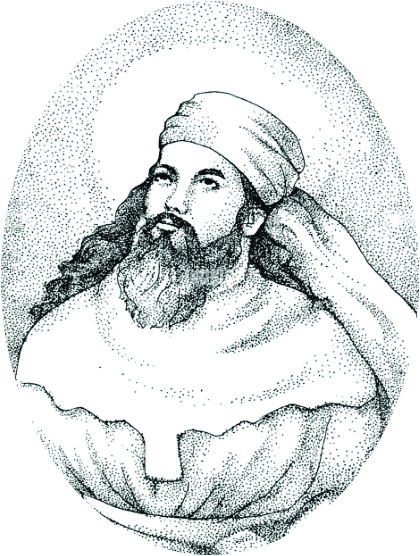 The essence of being a Zoroastrian is to live life to the fullest and celebrate life, every single day. Although not a practising Zoroastrian, Eleanor Roosevelt (U.S. First Lady, Diplomat and Human Rights Activist) came closest to this truth when she said: “The purpose of life is to live it, to taste experience to the utmost, to reach out eagerly and without fear for newer and richer experience.”
The essence of being a Zoroastrian is to live life to the fullest and celebrate life, every single day. Although not a practising Zoroastrian, Eleanor Roosevelt (U.S. First Lady, Diplomat and Human Rights Activist) came closest to this truth when she said: “The purpose of life is to live it, to taste experience to the utmost, to reach out eagerly and without fear for newer and richer experience.”
Indeed, every good Zoroastrian is expected to find his or her purpose in life and to then work towards progress and prosperity, not just for self and family but for all humanity. Amazingly, Asho Zarathushtra sang his message in the Gatha about leading a positive and productive life in an age we call prehistoric and yet, over the centuries, his message continues to remain fresh and relevant.
Positive Attitude:
It is not just about sporting a charming smile on one’s face. It is about cultivating and maintaining an optimistic mindset and attitude even when things are in a state of turmoil. What good or bad diet does to one’s body, positive and negative thoughts do to one’s mind! Feed the mind with positive thoughts and one will experience amazing changes in life.
When we start thinking optimistically, our mind becomes clear of all negative thoughts, and we start to see the world in a different light. One begins to stop lamenting and blaming self or others. We get in control of our emotions and try to seek a valuable lesson in every setback of life.
To be a good Zoroastrian is primarily about our attitude (which should be always positive), our values (of truth, righteousness, and fairness towards one and all), our charitable disposition, our love for food, drink and humour and all things good. It is about ‘living the religion’ instead of claiming to die for it. It is about being reasonable and balanced in approach – neither a right-wing fanatic nor a left-wing heretic. Researchers conclude that having a positive attitude and approach to life reduces stress, promotes good health and is generally responsible for happiness and wellbeing.
Living The Zoroastrian Way
What does it mean to be a Zoroastrian? What exactly is the Zoroastrian way of life and living? Let us delve into some of our scriptures to get answers. It is said that Zarathushtra had his first vision of Ahura Mazda on Roj Dae-pa-Meher, Mah Ardibehest. According to the Pahlavi text, Zarathusht Nameh, Zarathushtra asked Ahura Mazda a question (the very first question) and in the answer that he received from Ahura Mazda, one may find an excellent summary of what being a good Zoroastrian really means. The question was: “Who is the best person among all people in the world?” And, Ahura Mazda answered, “He who walks on the path of Asha (Righteousness); is charitable; is just; reveres fire; water and is kind even to animals.” This is the very essence of living the Zoroastrian way of life.
Zoroastrianism is about considering poverty, suffering and want as an affliction of evil. To remove poverty, deficiency, disease, and human suffering is not only a religious duty and part of Zoroastrian culture, but an act of spiritual merit, depriving ‘evil’ of sustenance. If Christ asked his followers to love their neighbours, Zarathushtra asked his followers to attain happiness by making others happy. Zoroastrianism is about being happy and making others happy.
Zoroastrianism is about considering wealth to be fundamentally positive, provided it is acquired through righteous means and used for righteous purposes. A Zoroastrian is not required to practice celibacy in order to attain salvation. In fact, getting married at the appropriate time and raising a family is itself an act of spiritual merit. A Zoroastrian is not required to renounce the world and lead an ascetic life. In fact, that would be considered a sin. Life is a gift of Ahura Mazda and is meant to be enjoyed, not endured, and enjoying life and expressing gratitude for that joy is the essence of Zoroastrianism!
Zoroastrian Beliefs
In Iran, to this date, we can see more than 2,500-year-old bas reliefs of the Great Achaemenian kings worship Divinity through the medium of fire. This is because a Zoroastrian recognize fire as the visible embodiment of Light and Life. Fire dispels darkness and has the inherent quality to animate or bring to life the various creations of Ahura Mazda. Doctrinally, Ardibehesht Ameshaspand or Asha Vahishta (Best Righteousness/Best Truth/Holiness) presides over fire, and therefore it is also perceived as the living embodiment of Ahura Mazda’s Truth.
In the concept of the Holy Amesha Spenta, one finds the timeless principles of ecology and living in harmony with Nature including human beings, animals, fire, metals, earth, water, and vegetation. Scientists advise us today to protect the rain forests, not to pollute the waters etc., but, Zarathushtra codified the principles of ecology thousands of years ago.
At an ethical level, Zoroastrianism is about imbibing the ethical qualities of the seven Amesha Spenta. Zoroastrianism is about starting all tasks in the name of and dedicate the result to Hormuzd or The Supreme Divinity; do all work using Bahman or the Good Mind; perform the task with Ardibehest or Truth and attain Sherevar or Righteous Power and to this power add Spendarmad or Piety and Humility and attain Khordad or Perfection for Amardad or for eternity.
Practise
Humata, Hukhta, Havrashta (Good Thoughts, Good Words Asha, Good Deeds) are three words. Zarathustra’s teachings could be summed up in just one word – Asha. It stands for: Truth (as opposed to falsehood), Righteousness, Divine Order (or living in harmony with the Laws of Nature) and Purity (in thought, word, and deed). The Colophon or preface to Yasna asserts, “There is but one path, that of Asha. All other paths are false.”
Zoroastrianism is about being a spiritual warrior (Rathestar) fighting evil at the physical, social, ethical, and metaphysical level. Unfortunately, we have in our midst today, more internet and social media warriors. In fact, we hardly have soldiers left. We only have generals who decide in the ‘Academy of Social Media’ regarding what is good or not good, from their personal point of view.
At the physical level, all forms of impurity and pollution are seen as a manifestation of evil. Zoroastrianism is about purity and cleanliness, at home and at work, in the mind, in our words and in our actions. At the social level, all forms of poverty, want, human suffering and ignorance are seen as an affliction of evil. Zoroastrianism, therefore is about charity and ensuring social justice! At an ethical level, every good Zoroastrian must guard himself/herself against the allegorical demons of lie, half-truths, suspicion, wrath, greed, envy, and other vices.
Befriend Divinity
In the Hoshbam, which we pray at dawn, we affirm, “Through the best righteousness, excellent righteousness, O Ahura Mazda, may we catch sight of Thee and may we come near Thee and attain Thy eternal friendship!” This prayer is a very powerful early morning affirmation where the devotee affirms at the start of the day that he/she aspires to know and understand Ahura Mazda and the only way he/she can achieve this ultimate and sublime goal is by walking on the path of truth and, in doing so, the devotee earns Ahura Mazda’s ‘friendship.’
This is yet another amazing facet of Zoroastrianism wherein a devotee need not fear Ahura Mazda, nor try to appease Ahura Mazda with sacrifice or fasting or by indulging in superstitious practices. Ahura Mazda is not a Divinity to be feared but a Divinity that can, and should be, befriended and loved.
To conclude, life is a gift – enjoy it with responsibility and gratitude!
- The Poison of Pessimism - 27 April2024
- Celebrating The Interplay Of Life And Fire! - 20 April2024
- Customs To Observe At Atash Behram Or Agyari - 13 April2024
